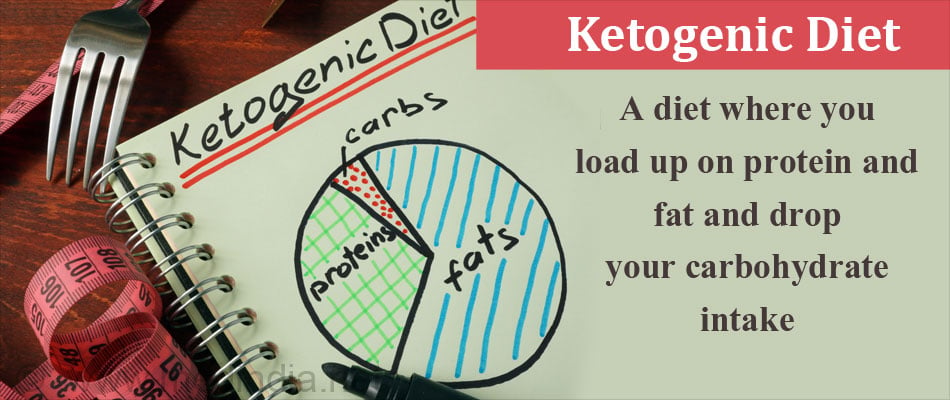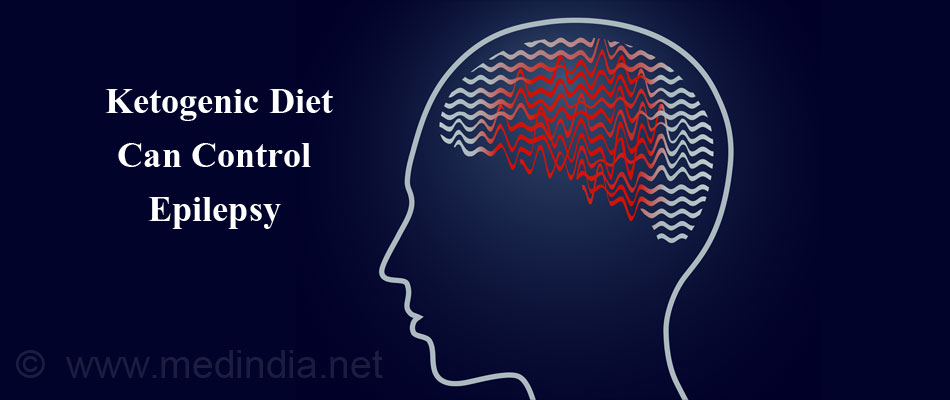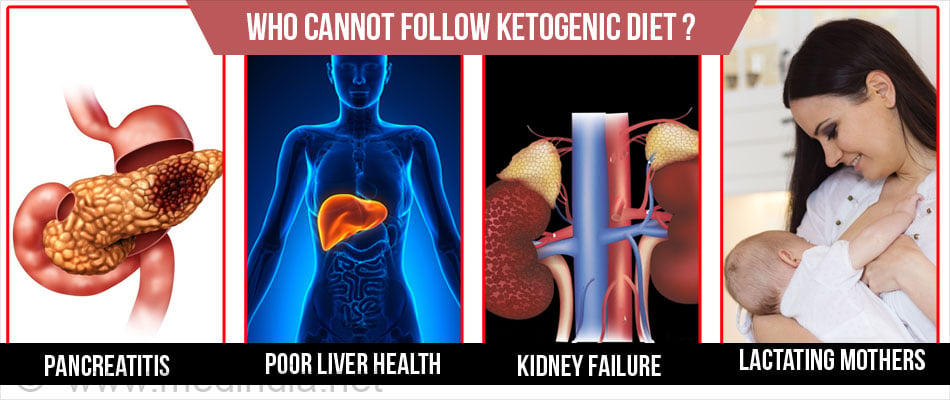- The Ketogenic Diet: Uses in Epilepsy and Other Neurologic Illnesses - (http://ajcn.nutrition.org/content/85/1/238.full)
- Ketogenic diets as an adjuvant cancer therapy: History and potential mechanism - (https://www.ncbi.nlm.nih.gov/pmc/articles/pmc4215472/)
- Long-term effects of a ketogenic diet in obese patients - (https://www.ncbi.nlm.nih.gov/pmc/articles/pmc2367001/)
- Ketones to combat Alzheimer’s disease - (https://www.ncbi.nlm.nih.gov/pmc/articles/pmc3945587/)
- Neuroprotective and disease-modifying effects of the ketogenic diet - (http://blogs.plos.org/neuro/2016/07/16/ketones-to-combat-alzheimers-disease/)
- Potential Therapeutic Use of the Ketogenic Diet in Autism Spectrum Disorders - (https://www.ncbi.nlm.nih.gov/pmc/articles/pmc2716748/)
- Ketogenic diet for treatment of epilepsy - (https://www.ncbi.nlm.nih.gov/pmc/articles/pmc2898565/)
- The antidepressant properties of the ketogenic diet - (https://www.ncbi.nlm.nih.gov/pmc/articles/pmc1325029/)
- A low-carbohydrate, ketogenic diet to treat type 2 diabetes - (https://www.ncbi.nlm.nih.gov/pmc/articles/pmc4074854/)
- Ketogenic Diet for Obesity: Friend or Foe? - (https://www.ncbi.nlm.nih.gov/pubmed/15601609)
- Benefits of ketogenic diets - (https://www.ncbi.nlm.nih.gov/pmc/articles/pmc2902940/)
What Is Ketogenic Diet?
Ketogenic diet was first introduced in the year 1920 but it became popular during 1970s. A ketogenic diet plan consists of 80% fat, 5% carbohydrate and 15% protein. It is characterized by a drop in the carbohydrate intake to less than 50 grams per day whereas, the proportion of protein and fat increases. Such a diet leads to the production of ketone bodies in the bloodstream and forces the body into a state of ketosis.

What Is Ketosis?
After a very low carbohydrate diet intake or after a few days of fasting, the body's glucose stores become insufficient for the production of oxaloacetate. Oxaloacetate is a compound that helps in fat oxidation (breakdown of large fat molecules into their smaller parts). Thus, incomplete oxidation of fat in the liver leads to the production of ketones.
Secondly, the sole source of energy for human brain is glucose and this cannot be replaced by fat. After a few days of fasting or low carbohydrate intake, energy needs to be derived from breakdown of fatty acids and this leads to the production of ketone bodies. Therefore, ketones become the source of energy for brain and other tissues which cannot utilize fat as a source of energy.
Ketogenic Diet Plan
A ketogenic diet plan is an unbalanced diet plan that requires strict monitoring and attention especially in children. Ketogenic diet plan requires strict adherence and even a slight deviation in food preparation can affect the efficacy of the diet. Here is all the information about ketogenic diet:
- Ketogenic diet plans are tailor-made and patient data such as height, weight, age. are recorded to derive the quantity and portion size.
- Children above 3 years of age should be supplied 1 gram of protein per kg body weight.
- A 24-48 hour fast is observed before starting with a ketogenic diet, with the patient being hospitalized.
- During this fast the individual can eat unsweetened gelatin or drink unsweetened beverages or water.
- Blood and urine glucose and ketone levels need to be monitored during fasting. Besides this electrolyte levels and other parameters also need to be monitored.
- If the diet is gradually initiated it results in fewer adverse effects and hence it is better tolerated.
- Ketogenic diet is introduced by starting with one third of calories per meal which is further increased to two thirds and finally total amount of calories per meal every 24 hours.
- Patients are discharged 2-3 days after initiation of the diet.
- Ketogenic meal plans include low carbohydrate and high fat food items such as eggs, heavy cream, sausages, low carbohydrate vegetables, mayonnaise, shrimp, tuna and chicken.
- Starchy foods such as rice, pasta, bread, potato, fruits, starchy vegetables and sources of simple sugars are not allowed.
- Daily intake of vitamins and minerals in sugar-free formulation is recommended.
Ketogenic Diet And Epilepsy
Studies have revealed that ketogenic diet is effective for children and adults with epilepsy whose seizures are difficult to control. This specialized diet is for children whose seizures are not controlled with anti-epileptic drugs. GLUT-1 is a glucose transporter that transports glucose across the blood-brain barrier. Mutation of GLUT-1 in children causes seizures, a symptom of epilepsy.

During starvation, ketone bodies become the main fuel for the brain's energy demands. Scientific studies have observed that ketogenic diet mimics the biochemical response to starvation. Therefore, these children respond very well to ketogenic diet where ketone bodies become a source of fuel for the central nervous system.
Benefits Of Ketogenic Diet Plan
- Improves Mental Health: Patients on ketogenic diet become more alert and exhibit improvements in activity levels and attention. This diet further has anti-depressant properties and it fights depression and bipolar disorder.
- Fights Obesity: A high protein and high fat diet curbs appetite, keeps hunger pangs at bay and reduces overall intake of calories. Ketone bodies have appetite-suppressant action and thus it reduces energy intake. A low carbohydrate diet, particularly low intake of simple sugars and refined foods further helps in weight loss and reduces abdominal fat.
- Improves Lipid Profile: Less intake of carbohydrates, especially simple sugars helps reduce blood triglyceride levels which is a huge risk factor for heart disease. Furthermore, ketogenic diet is also associated with improved levels of HDL cholesterol which is healthy and heart-protective.
- Management of Diabetes Mellitus: Strictly cutting down carbohydrate intake helps in better control and management of type 2 diabetes mellitus. A study revealed that low carbohydrate intake controls blood glucose levels and further helps in reducing medicine dose in patients with type 2 diabetes mellitus.
- Treats Neurological Disorders: Ketogenic diet shows great promise in neurological conditions such as Parkinson's and Alzheimer's. Treatment with medium chain triglycerides such as coconut oil increases the release of ketone levels. Such high levels of ketone is associated with greater improvement in memory.
- Helps in Treatment of Cancer: Studies have revealed that ketogenic diets play an important role in the treatment of cancer. Such a diet reduces tumor growth and improves survival rate. Ketogenic diet further potentiates the effect of radiation and chemotherapy.
- Treatment of Autism: Ketogenic diet has also been recognized as an effective treatment for autism. A study reported that children with autism when treated with ketogenic diet showed improvement in learning abilities, social skills and reduced seizure frequencies.
- Treatment of Headaches: Migraine patients have an energy deficit in the brain. Ketone bodies produce more energy as compared to glucose and lesser oxidative stress. Thus, ketone bodies act as an energy booster, so the brain and muscles work more efficiently. Ketone bodies further reduce inflammation and therefore improve the overall condition of patients with migraine.

Drawbacks Of Ketogenic Diet
- Acidosis is a common problem
- Poor immunity and low platelet count
- Kidney stones
- Impaired mood
- Easy fractures and bone pain
- In children, inadequate calcium intake can impair bone mineralization
- Rare side-effects include cardiomyopathy, pancreatitis and QT syndrome
- Ketogenic diet often causes gastrointestinal side effects because of its high fat content.
- Carbohydrates are a main source of dietary fiber. Lack of dietary fiber in the diet can lead to constipation.
- Carbohydrate intake contributes to the production of serotonin, that calms your body and helps you fall asleep. Because ketogenic diets contain very less amount of carbohydrates, it may lead to insomnia or poor quality of sleep.
- Fruits and vegetables are main sources of vitamins and minerals. But in ketogenic diet fruits and vegetables are eliminated. Therefore, use of such an unbalanced diet predisposes to nutritional deficits in vitamins, minerals and antioxidants.
Who Cannot Follow Ketogenic Diet?
Before undertaking ketogenic diet strict medical supervision is required. Here are certain health and medical conditions under which ketogenic diet should not be practiced:
- Individuals with history of pancreatitis
- Poor nutritional status and health
- Poor liver health or impaired liver function
- Individuals with history of kidney failure
- Gall bladder disease
- Individuals with fat indigestion
- Pregnant women and lactating mothers
- Reduced gastrointestinal motility
- Stomach cancer and abdominal tumors










